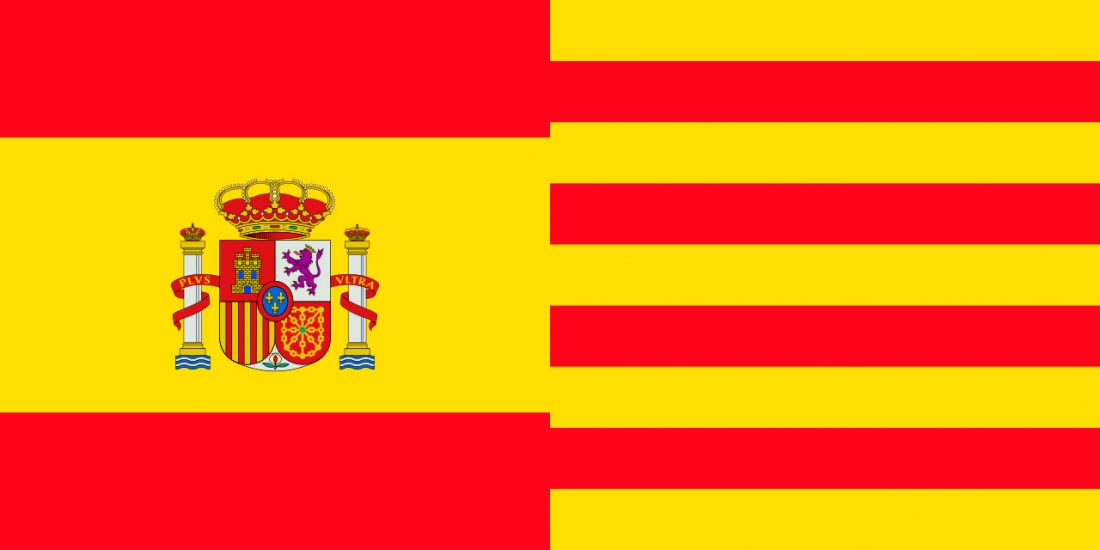Catalan secessionists have succeeded in framing the debate over Catalan independence as a stark choice between two mutually exclusive options: either the status quo of Catalonia retaining regional autonomy within Spain, or for Catalonia to become an independent republic. Anyone objecting that neither might not be the best solution to the current deadlock is dismissed as ‘undemocratic’, by both sides. It is a superb rhetorical technique: is there anything more ‘undemocratic’ than not allowing citizens to decide on their future?
The Spanish government response to the secessionist challenge has been to deny their opponents the opportunity to stage a referendum, decrying it as as illegal under the Spanish constitution. To inflame matters further, Prime Minister Mariano Rajoy sent the Policia Nacional to break up the un-constitutional independence referendum, held on October 1st, injuring peaceful citizen taking part in the vote. Rajoy’s strategy has been short-sighted, indicating a lack of interest in bringing about a negotiated solution to an ever-growing problem that threatens the very core of Spanish democracy.
Contrary to what the Spanish government believes, what is wrong with the idea of a referendum is not that it is illegal under current constitutional law – laws are contingent and can always be changed – but that it is based on a false dichotomy.
A false dichotomy operates when an argument presents two options and ignores, either intentionally or out of ignorance, unexpressed alternatives. The choice might conceivably come down to remaining an autonomous region within Spain, or full independence, but these are, by no means, the only alternatives. Hence, the question should really be: how can two mutually-exclusive choices adequately represent the diversity of beliefs in the region and the country as a whole? A false dichotomy forces homogenisation of opinions, and asks those confronting the dichotomy to drop any differing views they might hold, which does not represent one or other of the mutually-antagonistic options.
Therefore, the danger of a referendum is that of oversimplification. In a highly divided region such as Catalonia, where secessionists represent almost half of the population (a recent poll puts support for independence at 40,8 %), finding a solution in which one side is proclaimed the victor over the other – a zero sum game – will not bring permanent stability. It denies the losing side a voice in the future of their region. This has been the failed strategy of the Spanish government over the past number of years: to deny the validity of the interests of almost half of Catalans. Not taking into consideration one’s opponent’s interests is undemocratic, even if this comes about through a ‘democratic’ vote, such as a referendum. That is why most constitutions include ‘checks and balances’ against the dictatorship of the majority.
Rajoy’s Partido Popular (PP) is also guilty of blocking concessions that had given Catalonia a special status within Spain, including the right to be considered a nation, back in 2006. This left many Catalans with a grievance towards the government in Madrid, and brought significant support for pro-independence parties. The sense of betrayal might explain the insistence on a referendum as the only solution to the situation in Catalonia: ‘we already tried the negotiation table and look what happened’, claim the secessionists. But regardless of how emotionally-justified this reaction might be, it is nonetheless an inadequate response.
A more stable outcome, and one that has hardly been discussed by the main political actors, would require a process of negotiation with the final objective of arriving at a new status for Catalonia that would meet the interests of most Catalans. Democracy is not only about voting; it also involves political representatives arriving at a consensus through negotiation, which reflects the needs and interests of most citizens. A referendum would leave the voice of the losing side unattended, and on a highly divisive issue like Catalan secession, this would not resolve the underlying divisions. But for the negotiation to start, Rajoy must go.
Antonio Garzón Vico is Assistant Professor of Business of Biotech at the School of Biomolecular & Biomedical Science, University College Dublin.




